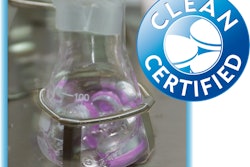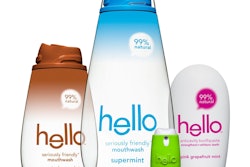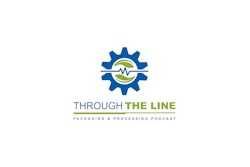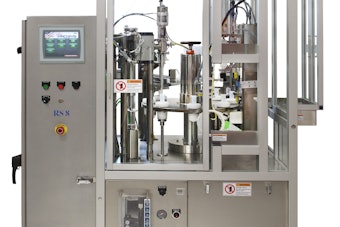“For almost a decade, members of the pharmaceutical supply chain industry have been working together to enhance track-and-trace initiatives, address policy, and improve patient safety and security in the supply chain through the use of standards. With the passage of H.R. 3204, these efforts have come to fruition in a national policy that will ensure a consistent, standardized approach is taken by the pharmaceutical industry to further combat counterfeiting, theft, and diversion, and to share critical information across the supply chain.
The federal law will replace a potential patchwork of 50 state regulations, which is critical for manufacturers, wholesalers, and dispensers as they can leverage their hard work that culminated in the publication of the industry guideline earlier this year (“Applying GS1 Standards to U.S. Pharmaceutical Supply Chain Business Processes to Support Serialization, Pedigree and Track & Trace”). GS1 Healthcare US and our industry partners are ready to further the collaboration to now align the guideline to comply at the federal level, along with supporting industry education and workshops.”
—Bob Celeste, Senior Director, Pharmaceutical Sector Lead, GS1 US, [email protected]
Through GS1 standards, companies will have the ability to build solutions that have real value without having to go through a whole lot of data transformation, remapping, and reformatting. GS1 standards enable companies to drive out the uncertainty and cost associated with developing solutions.
At the end of the day, the goal is to make sure that the information everyone publishes across the supply chain is reliable and consumable by everyone else. The only way to accomplish that is to have a common set of standards to which everyone adheres.
What are GS1 standards?
First, it must be understood that GS1 is an international, nonprofit organization that publishes a system of supply chain standards, now in use by more than 2 million companies operating in 145 countries, designed to work together in concert.
GS1 standards are truly global and are applied across multiple industries, including the grocery supply chain and the general merchandise supply chain. This is a bonus for pharmacies and wholesalers that participate in these supply chains.
Here is a partial listing of GS1 standards that you may benefit from adopting if you haven’t already:
• GS1 GLN Global Location Number
• GS1 GTIN Global Trade Item Number
• GS1 UPC barcode symbology
• GS1 element strings encoded in a barcode symbology such as GS1-128, GS1 DataMatrix, GS1 DataBar
• GS1 EANCOM EDI standard (Not used in the U.S. pharma supply chain)
• GS1 EPC RFID in frequencies including UHF and HF
• GS1 Electronic Product Code Information Services (EPCIS)
• GS1 Drug Pedigree Messaging Standard (DPMS)
• GS1 Global Data Synchronization Network (GDSN)
Any company wishing to make use of GS1 standards—including barcodes, identifiers, and data exchange standards—must first obtain a GS1 Company Prefix or “GCP.”
Normally you would obtain a GCP by applying for GS1 membership in the country where your company headquarters resides. But if your company makes drugs for the U.S. market, regardless of where you are located, you will need to obtain a special GCP from GS1 US (the local affiliate, or Member Organization, M.O., of GS1).
Currently, drugs sold into the U.S. must contain a linear barcode that encodes your U.S. Food and Drug Administration National Drug Code (NDC).
To encode that NDC into a GS1 barcode symbol, you must register with GS1 US so your GS1 GCP matches the FDA-assigned Labeler Code that is a part of every NDC. Only GS1 US can assign/register a GCP that matches your FDA-assigned Labeler Code.
It’s important to note that a company could easily end up with more than one GCP. For example, if a drug company from Switzerland merged with a company in France that sells globally, one GCP could come from Swiss GS1 M.O. One issued by the France GS1 M.O. would be obtained through the merger. Another GCP could be issued by GS1 US for use in identifying drugs sold into the U.S.
The parent company should view these GCPs as enterprise resources and manage them centrally rather than in silos. Companies should establish governance for their GS1 registration and use.
What is a GCP used for?
The GS1 Company Prefix is at the core of the GS1 System, the set of standards used globally for identification of products, services, assets, relationships, and even documents.
Building your serialization strategy using these GS1 standards will help you comply in as many countries around the world as possible.
Brazil, India, and South Korea have explicitly named GS1 identification standards in their regulations or in their guidance.
The GCP can vary between six and 10 digits in length, and may have a different variation depending on the number of SKUs the manufacturer wants to track. The GCP includes a country code and a unique ID for the company. When the US NDC is used, the GTIN will begin with a 3.
Here is a list of GS1 keys that are based on the GCP:
GTIN (Global Trade Item Number)—available in 8-, 12-, 13-, and 14-digit flavors, and the serial numbers associated with them when forming a serialized GTIN (SGTIN)
GLN (Global Location Number)—13 digits
SSCC (Serial Shipping Container Code)—18 digits
GRAI (Global Returnable Asset Identifier)—14 digits, first digit is always a zero plus optional serial number up to 16 additional characters
GIAI (Global Individual Asset Identifier)—up to 30 characters
GSRN (Global Service Relation Number)—18 digits
GDTI (Global Document Type Identifier)—13 digits plus optional serial number up to 17 additional digits
GINC (Global Identification Number for Consignment)—up to 30 characters
GSIN (Global Shipment Identification Number)—17 digits
GS1 SSCC (Serial Shipping Container Code) used to track pallets, totes, and other non-homogenous logistic units.
GS1 Core Business Vocabulary (Standard which specifies Business Steps and Dispositions)
Each type of GS1 key includes a numeric value that is combined with the GCP to form a specific instance of the key. It is the assignment of these numeric values that must be managed in some way. The total length of the key minus the length of the GCP determines how many digits are available to the owner to assign specific instances of the key. These digits represent the “key space” for a given key. The shorter the GCP, the larger the key spaces of each key type will be.
Liked this article? Download the entire playbook here.






















